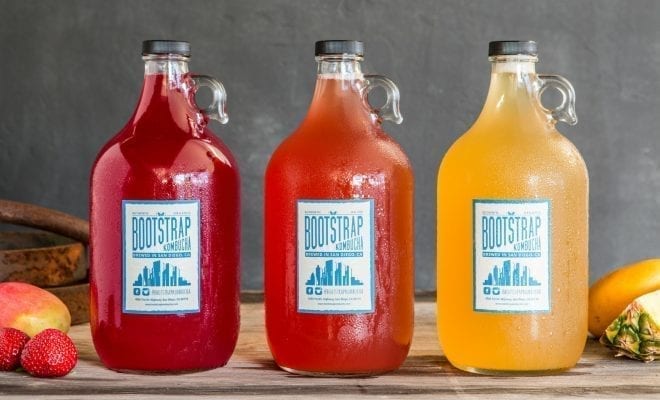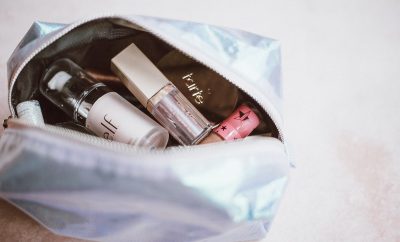
Lifestyle
What to Look for When Buying Kombucha
By Anton Fredriksen
Kombucha, the fizzy fermented tea packed with probiotics is currently having a major moment in the limelight. While relatively new as a mainstream beverage amongst the health conscious, it has reportedly been around for over two thousand years, most likely originating in China. Chances are when it comes to kombucha, you likely fall into one of two categories: 1) you’re either somewhat familiar with it, even if you’ve never tried it because it’s literally everywhere, or 2) you’re like me and you down copious amounts daily.
Even as a native Californian, I’m relatively new to the kombucha game, discovering it for myself only two years ago. After immediately falling in love with this tangy and refreshing effervescent tonic, I also began to realize just how great I felt after drinking it. Admittedly, I became a bit obsessed and began to explore and sample the numerous varieties of brands and flavors found in health food stores, supermarkets, and local kombucha brewers throughout San Diego.
Even after just a little research, I discovered that all kombucha is definitely not created equal. Much of the stuff you find bottled—even in the health food stores—has been manipulated to the point that it’s no longer recognizable as what kombucha is supposed to be and instead more closely resembles a souped up soda. Here’s a few tips so you can spot the real deal.
Say No to Pasteurized

Courtesy Photo
Pasteurization is a process in which foods and beverages are treated with mild heat (<100 °C) to eliminate pathogens and extend shelf-life. James Farnworth, co-owner of Bootstrap Kombucha, a local kombucha brewing company near Downtown San Diego says “it’s great for killing harmful bacteria in milk, cheese and other similar perishable products, but when it comes to kombucha it should never be pasteurized because it kills all the good-for-the gut probiotics that kombucha was created to provide for us in the first place.” This is why Farnworth and co-owner Susan McMillion brew in small batches to ensure freshness and currently serve only on tap.
There are many strict regulations when it comes to bottled beverages sold in supermarkets and health food stores, so to be compliant much of the kombucha sold in these stores is usually pasteurized. After pasteurization, companies will then go back and add in inferior probiotic supplements.
Search For Low Sugar Content

Courtesy Photo
The process of making kombucha requires sugar, but the majority of the sugars are burned up in the process of fermentation that ultimately creates kombucha as an end product. Farnworth says “it’s very easy to find kombucha on the market, especially in grocery stores, that is loaded with unnecessary added sugar as well as artificial flavors.” Instead, he suggests to always check labels to avoid any added sugar and to also make sure that the fruit juices in the kombucha and any other ingredients are not artificial.
Water Quality is Key

Courtesy Photo
The type of water and how is filtered plays an essential role in the development of kombucha and even the flavor. When purchasing kombucha, Farnworth suggests to stay away from kombucha that has been made with water filtered using reverse osmosis. This effectively strips water of essential minerals that help feed healthy probiotic growth and contribute to flavor. For this reason, Bootstrap Kombucha has a special water filtration system that filters out heavy metals and chlorine yet retains these essential minerals to enable optimal probiotic cultivation and full flavor development.
Avoid Plastic at All Costs

Courtesy Photo
We all know that plastic is terrible for the environment, but it’s also not at all good for our bodies. Numerous studies have shown that it leaches chemicals that mimic estrogen and cause serious health problems. This reaction is only enhanced when exposed to an acidic beverage like kombucha. Farnworth and McMillion are both very vocally against using plastic as means to brew or store their kombucha and clearly for good reason. They also say that while it’s important to steer clear of kombucha sold in plastic bottles, people should also watch out for more and more small kombucha companies brewing and serving kombucha in plastic kegs when buying it on tap.





0 comments